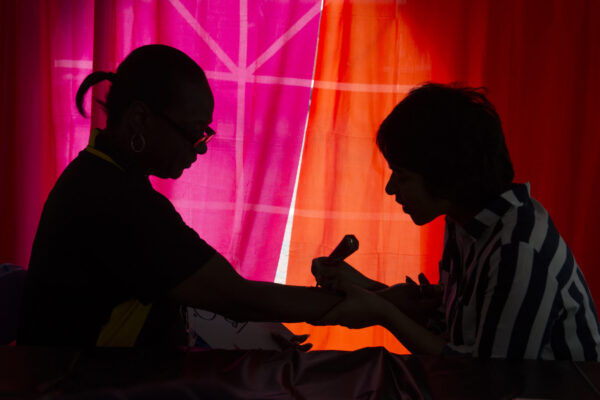By Mark A. Nook
In 2008, Iowa’s college and university graduates held the second highest average amount of student loan debt in the United States. Average student debt eclipsed $28,000 that year, marking the latest in a trend of rising debt among Iowa graduates. We saw this play out at the University of Northern Iowa (UNI); of those who borrowed, graduates of the Class of 2008 accrued approximately $24,000 in student loans. To reverse the trend for our students, UNI’s Office of Financial Aid and Scholarships developed Live Like a Student, a counseling and financial literacy program.
It is common practice for colleges and universities to offer financial literacy programs, but the personalized focus of our Live Like a Student program has enabled us to provide individualized guidance that meets the unique needs of each student. As a result, the program has shown immediate and sustained success at reducing student debt among UNI students. We have decreased student debt upon graduation by more than 13 percent—or an average of $3,300 per borrower—since 2010. We also have widened the difference between our trends in student debt and those observed nationally; UNI’s average debt is 24 percent lower than that of the national average.
Fig. 1. UNI Undergraduate Loan Indebtedness Upon Graduation

The decline in average student debt upon graduation is only part of our success story. UNI has also shown steady improvement in the number of students who no longer rely on loans to pay for educational expenses. The number of students who take out a loan in any single year has declined by 9 percent (from 69 percent to 60 percent) over the past six years. The proportion of graduates who borrowed at any point during their program of study also has declined by 7 percent (from 77 percent to 70 percent) in six years.
Fig. 2. Percent of UNI Students With Loans

Fig. 3. Percent of UNI Students With Any Debt at Graduation

The success of Live Like a Student in steering our students away from trends observed in Iowa and across the country comes from our emphasis on providing high-touch, individualized programs and services that teach financial literacy. The program was developed after an evaluation showed that many students borrowed beyond the cost of tuition, fees, and modest living expenses. The purpose of Live Like a Student is to equip students with skills and resources to make informed financial decisions. Our financial aid officers help students develop an understanding of the long-term implications of borrowing, and we assist borrowers in designing a financial plan that emphasizes practical spending habits during college.
Several guiding strategies of UNI’s Live Like a Student program are helping students reduce their reliance on loans:
- Live Like a Student seminars emphasize financial literacy. The cornerstone of financial literacy programming at UNI is our Live Like a Student seminar. Offered throughout the academic year, this free, three-week, non-credit course educates students about financial planning in an engaging and personalized format. Students log every expense during the three-week period, and they review their spending habits at the end of each session. Students also receive a comprehensive review of their borrowing history and projected repayment amount. Additional classroom activities and discussions help students understand concepts such as budgeting, investing for their future, credit, and identity protection.
- Private loan counseling reduces student borrowing. A small number of UNI students borrow private loans, but this form of financial aid is a leading contributor to the total amount of debt incurred by our students. In 2007, we initiated mandatory private education loan counseling for students seeking these loans. During these sessions, students create a modest budget to re-evaluate whether they need private loans. Oftentimes, students are able to determine that the private loan is unnecessary. Private education loan counseling has made the most significant contribution to reducing average debt levels; total private loan borrowing at UNI has declined by 70 percent—from $15.3 million in 2007-08 to $4.6 million today.
- Transfer student financial counseling helps with the transition to UNI. UNI began offering a specialized financial counseling program to transfer students in 2016. Our financial aid officers meet with transfer students to review their borrowing histories, plan for the costs to attend UNI, and develop action steps to reduce overall debt while earning their degrees.
- TEACH Grant counseling prepares eligible students to meet program obligations. As a leader in the field of education, UNI encourages eligible students who are interested in teaching a high-need subject in a low-income area to participate in the TEACH Grant program. UNI students who accept the TEACH Grant are required to complete a one-on-one counseling session with a financial aid officer in order to understand the eligibility requirements for up to $4,000 per year in TEACH Grant funds. With nearly one in five of our baccalaureate graduates earning a degree in education, the TEACH Grant program has provided many of our students with an alternative to loans while supporting their academic and career aspirations.
- Expanding our reach, changing campus culture. The Office of Financial Aid and Scholarships is regularly invited to speak to academic classes and student organizations. The personalized approach of our Live Like a Student program aims to establish a culture of financial literacy across campus.
Financial literacy is not the silver bullet to rising costs for students and their families. However, our Live Like a Student program offers a powerful example of the difference we can make as educators and leaders in the financial wellbeing of our students. With an investment of time and modest resources, colleges and universities that implement a comprehensive financial literacy program—coupled with loan counseling—will likely achieve similar outcomes for their students. At UNI, doing so affirms our commitment to helping each student reach their educational, professional, and personal life goals.
If you have any questions or comments about this blog post, please contact us.


